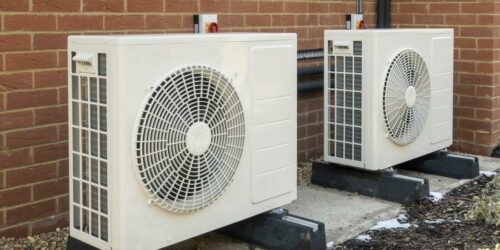A Guide to Air Source Heat Pump Efficiency
- A comprehensive look at air source heat pumps
- How efficiency is measured
- Comparison of heat pumps and gas boilers
What makes air source heat pumps so efficient? Despite the fact that they still operate using electricity, they make such good use of it. It’s all down to the science and how these incredible pieces of technology can amplify residual heat in the air, right down to temperatures as low as -25°C.
This article will explain how air source heat pumps work and compare them to gas boilers. It’s important to understand both the “how” and the “why” when we talk about efficiency, as home heating accounts for around 14% of UK emissions. Once you fully understand the benefits of heat pumps, you can then choose to reduce your carbon footprint.
Ready to purchase a heat pump? Use our quote comparison tool to find out how much you’d pay. It only takes a minute.
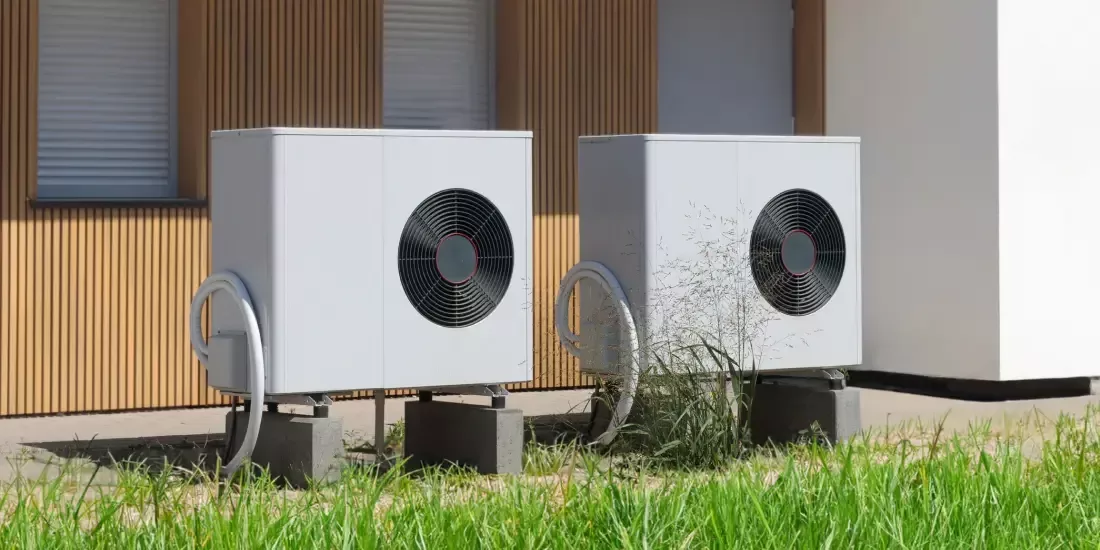
What's On This Page?
Click the links below and head straight to a specific section of the article.
How Efficient Are Air Source Heat Pumps?
Usually averaging efficiency ratings of 300–400%, air source heat pumps are capable of producing more energy than they consume. Naturally, these percentages change depending on the outside temperature, but the efficiencies always remain above 100%, unlike traditional fossil fuel boilers.
With air-to-water heat pumps, the percentages will be narrower as they can maintain more level temperatures. An air-to-air system can vary much more because of the outside temperature fluctuations.
In theory, as an average home will use around 12,000kWh of energy for heating, air source heat pumps can cover this by only using 4,000kWh of electricity. In reality, it’s not so clear cut.
How Ratings Are Measured
The energy efficiency of heating systems is measured by the Coefficient of Performance (CoP). When we look at different heating types, anything higher than 1 unit generates more energy than the power it consumes. Typically, gas boilers are around 0.97, while electric boilers can be at 1 as they’re usually 100% efficient.
You can see various CoP measurements in the interactive graph below.
The way the CoP works is as a measurement of resulting heat for every kilowatt of energy the heating system consumes. In other words, air source heat pumps with a CoP of 3 will produce 3kW of heat for every kW they consume. Most of the energy is transferred from the air, saving you money.
It’s important to understand that the CoP of any system will fluctuate as it’s a fluid measurement that changes based on external factors, such as the weather. This is one reason why you should check the CoP of air source heat pumps in different seasons. The manufacturer may tell you one measurement, but everyone’s CoP rating is likely to be different.
How Efficient Are Heat Pumps in Winter?
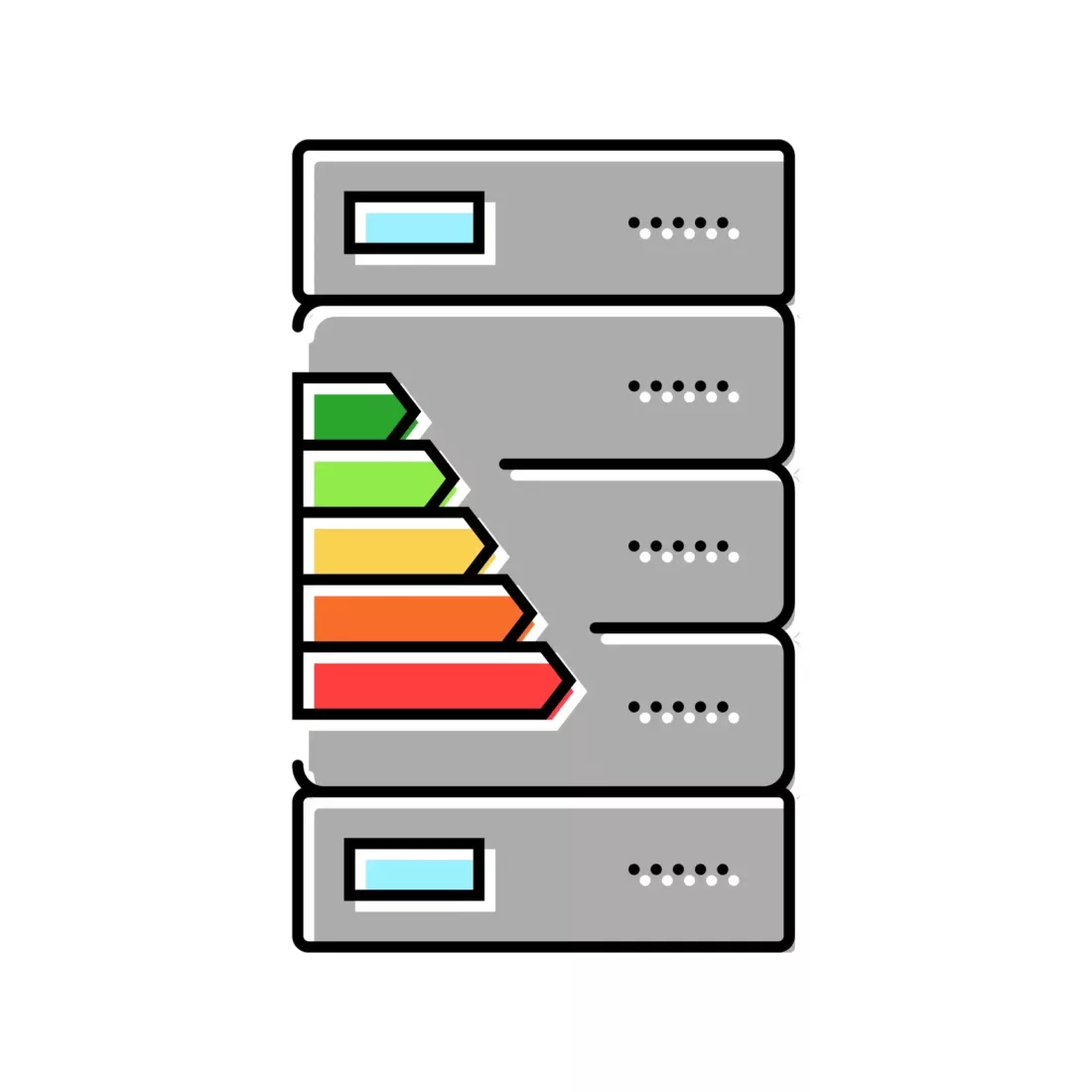
As the outside temperature lowers, our need for indoor heating increases. Similarly, while air source heat pumps are highly efficient in mild conditions, in cold weather, they have to work harder to maintain set temperatures. This effectively means they are less efficient over winter, usually around 20% less.
Depending on how cold it gets, air source heat pumps can drop to a CoP of 2.5, and sometimes even 1.5. This means the compressor needs to use more electricity to make up the difference in temperature. Underfloor heating is best suited for heat pumps because it uses lower temperatures, so this can give you a better CoP.
Seasonal CoP
However, because the CoP can change so frequently, it’s more useful to look at the Seasonal Coefficient of Performance (SCoP). This is also known as the Seasonal Performance Factor, but it effectively averages out the heating capabilities throughout the whole year. Typically, air source heat pumps average a SCoP of 3.4.
Why Are They So Efficient?
Based on the principle that most of the heat is transferred rather than generated, air source heat pumps cut energy bills by only needing to do part of the work. The amplification of heat comes through the use of a compressor, which moves refrigerant through a cycle, alongside a heat exchanger, which draws out the ambient heat from the air.
The refrigerant gas in air source heat pumps expands as energy is absorbed from the air. This cools it down to allow it to attract more heat, which then compresses the gas and amplifies the heat gain, transferring it to your hot water.
Thanks to the second law of thermodynamics, discovered in 1850, we understand that heat will always flow from hotter areas to colder ones. It’s this proven principle that makes heat pumps so efficient.
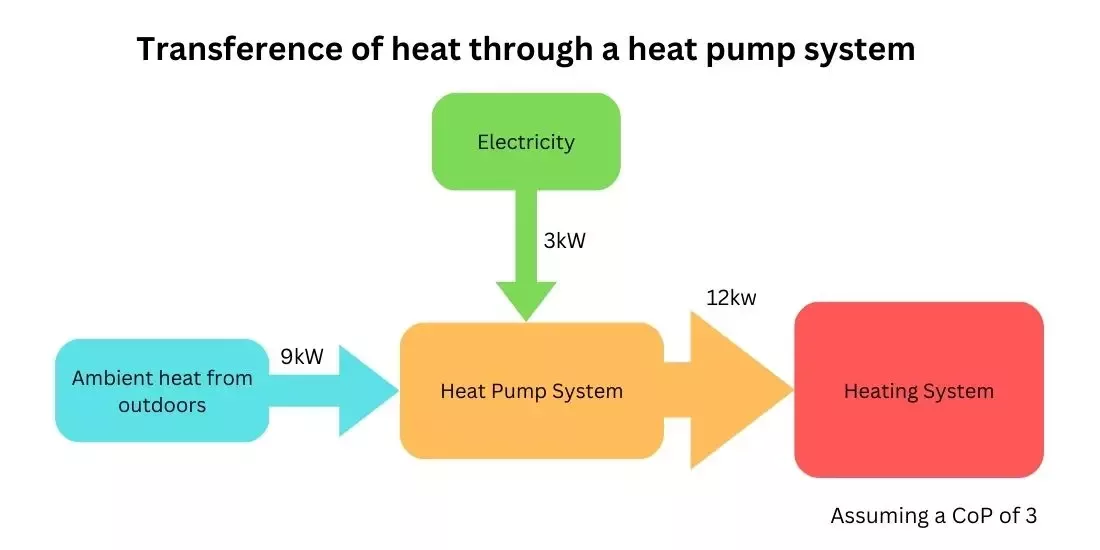
Even in subzero temperatures, air source heat pumps can still operate effectively. There is still residual heat in the air below the freezing point of water, as the Celsius scale doesn’t correspond to absolute zero like Kelvin does. For there to be no energy in the air, it would have to be -273°C.
How Does the Efficiency of Air Source Heat Pumps Compare to Gas Boilers?
Flow Temperatures
While heat pumps alter how much electricity they need throughout the seasons, gas boilers run at the same temperature throughout the year. In actuality, this is a very inefficient way of heating your home. A gas boiler will run to a flow temperature of 70°C in both winter and the height of summer, which is a massive waste of energy.
In the summer, a heat pump will operate at a much lower flow temperature of around 35°C because there will be plenty of heat in the air. This means heating will come very cheaply if it ever needs to be used. In the winter, this will need to increase to around 55°C, which is why air source heat pumps would need a little more electricity to maintain higher temperatures.
Efficiency Ratings
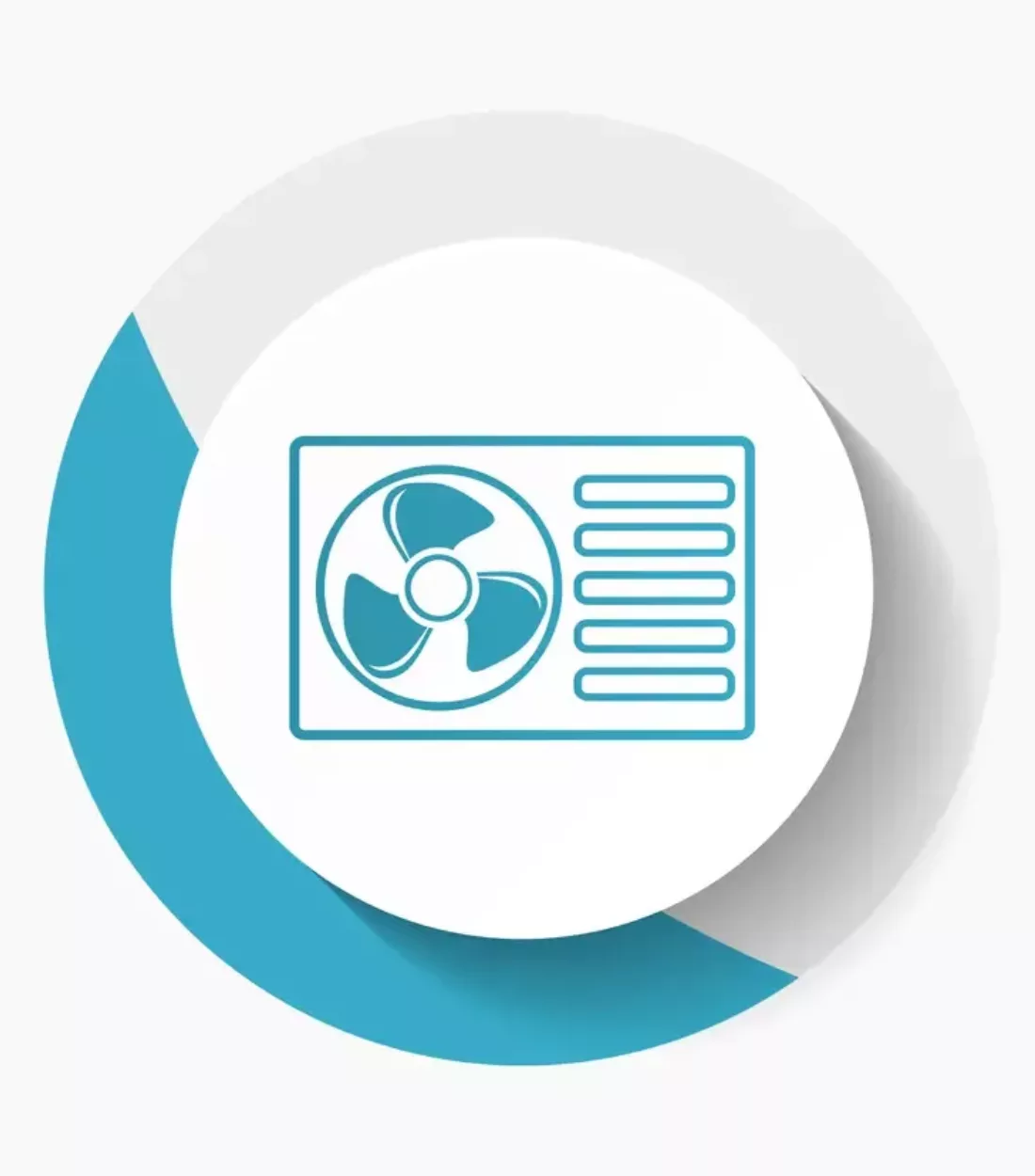
On average, gas boilers are around 90–95% efficient. This means that for every pound you spend on gas, you only get 90–95 pence of energy; the rest is simply wasted as heat.
For air source heat pumps, their efficiencies are anywhere from 150–400%, depending on the season and the type of heat pump system you have. This means that for every pound you spend on electricity, you will get 150–400 pence of energy; there is no wasted heat.
Emissions
A gas boiler will emit around 215g of CO₂ per kWh of heat. In essence, fossil fuel boilers impact the environment because they burn a nonrenewable resource. Exhaust gases need to go somewhere, and these are expelled into the air.
By comparison, a heat pump will produce no carbon emissions itself, but it’s not considered a renewable resource because it runs on electricity. Air source heat pumps are a low carbon form of heating as they are only as clean as the electricity they’re supplied with.
As the UK grid is made up of around 40% of electricity from renewable sources, there are some emissions associated with heat pumps based on the electricity that is produced using fossil fuels. You can expect air source heat pumps to indirectly add 80g of CO₂ per kWh of heat.
You can see a visual breakdown of this comparison in the interactive graph below.
Air Source Heat Pump Costs
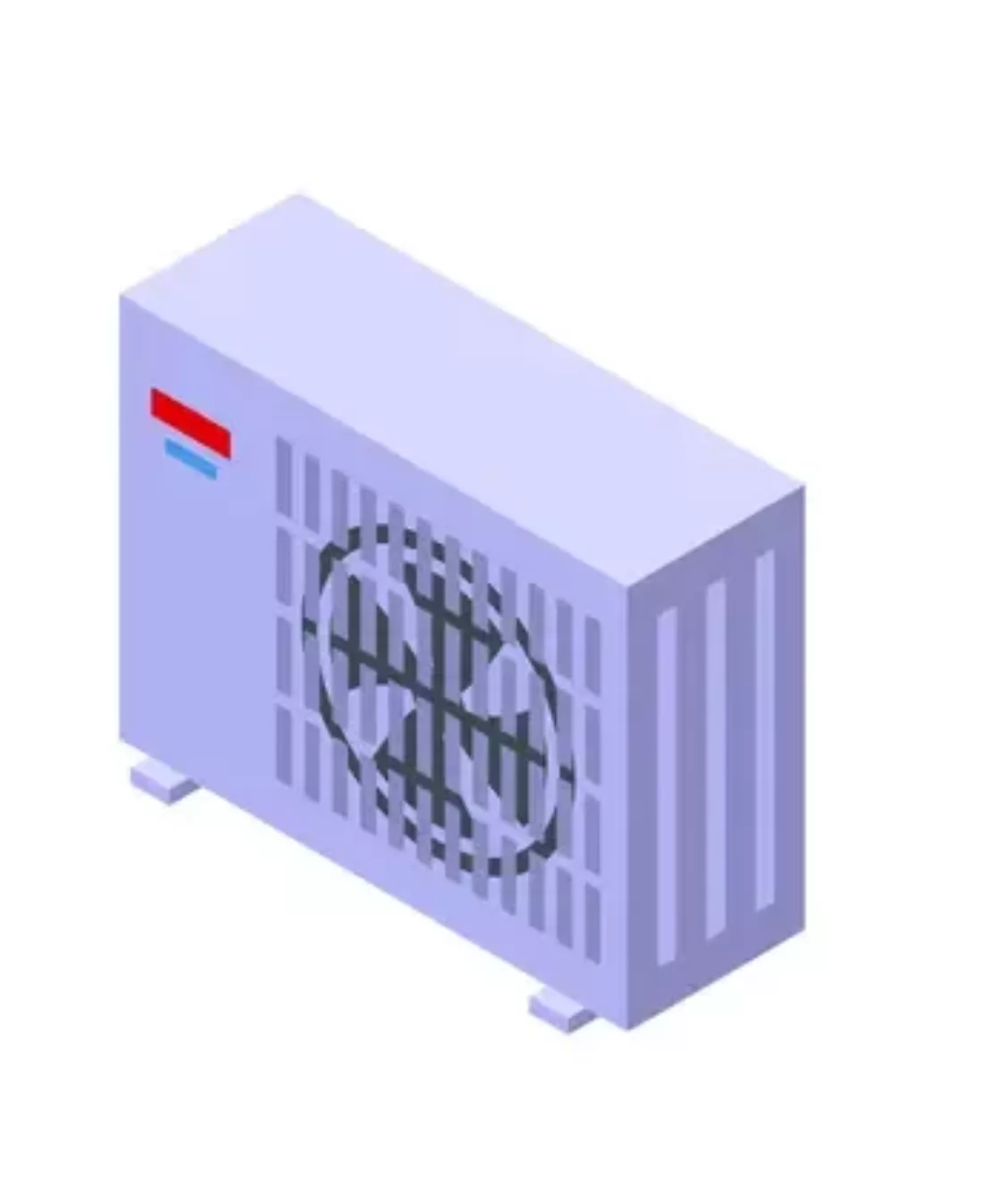
When looking at the heat pump costs compared to other heating systems, it’s important to pay attention to the operational costs. Paired with the installation cost, you will then have a clearer picture about the price of air source heat pumps.
On average, it costs around £10,000 to have an air-to-water heat pump installed in your home. Even with the price of electricity changing frequently, you can expect to pay around £650 a year to run air source heat pumps. This assumes less than 2,500kWh of use.
If you’re installing an air source heat pump with the Boiler Upgrade Scheme, this brings the cost down to £2,500. By giving households a £7,500 discount, price parity with gas boilers is then achieved.
With gas boilers, installation will cost around £2,800 for a system model. Gas is always cheaper than electricity, but operational costs will be fairly consistent at around £820. A house using gas for heating and hot water will use around 12,000kWh a year.
You can see how these costs compare in the interactive graph below.
Lifespan
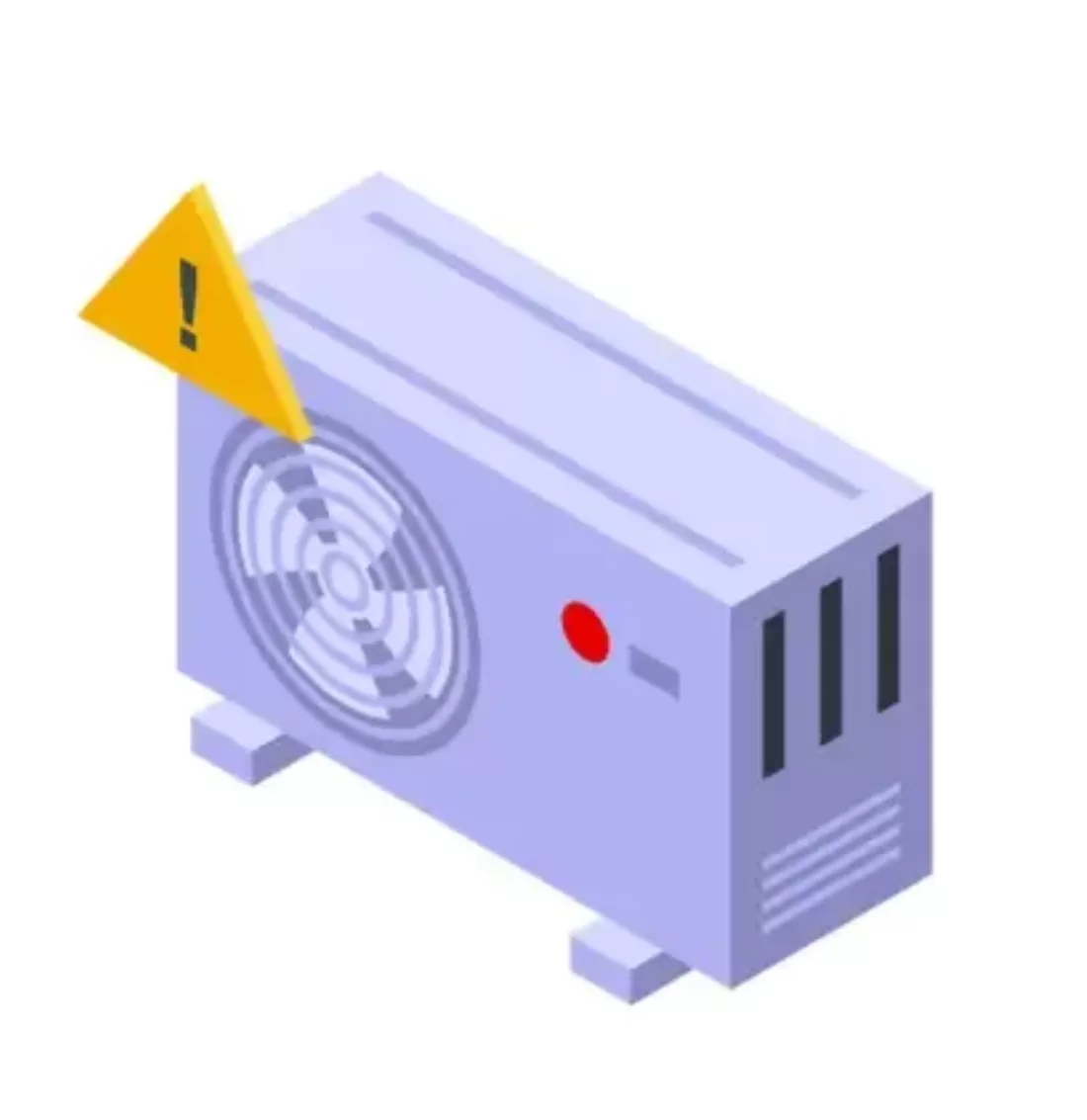
The other comparison that needs to be made between air source heat pumps and gas boilers is their lifespan. Heat pumps last longer than their gas counterparts, which saves you money on replacements over the course of their operational life.
Gas boilers typically need replacing every 15 years at the very most. With air source heat pumps, their longevity is 20–25 years. This means you can potentially get an additional 10 years out of a heat pump, which will save you money on replacements. Of course, actual lifespan varies by model and manufacturer.
Summary: Factors That Affect the Efficiency of Air Source Heat Pumps
Outside temperature, season and climate
Installation and size
Insulation levels
Maintenance and servicing
Outside Temperature, Season and Climate
The highest efficiencies for heat pumps are found when there is readily available heat in the outside air. The lower the temperature, the lower the efficiency. However, air source heat pumps can maintain a CoP above 1.5 right down to -10°C.
Installation and Size
A lot of your air source heat pump’s efficiency will come from how well it’s installed. Providing they are fitted correctly, you should have the best amount of efficiency available.
Because heat pumps work at low flow temperatures, they aren’t an immediate source of heat. Bigger models are capable of producing increased heat and converting it more economically. You should only get a model that’s suitably sized for your home, otherwise this will lead to wasted energy (whether undersized or oversized).
Insulation Levels

The better insulated your home is, the less hard your heating system has to work to maintain set temperatures. During the installation process, it may be suggested that you need to fit additional insulation. If you upgrade your insulation, air source heat pumps will only get more efficient.
Maintenance and Servicing
Providing your heat pump is looked after, it will not only last a long time, but run at optimum levels efficiently. Similar to how you would conduct an annual service for your boiler, you should make sure to do the same for your heat pump.
Feeling more informed about heat pumps? Use the button below to find out how much you’d pay for one.
Related articles
View all Heat Pump articles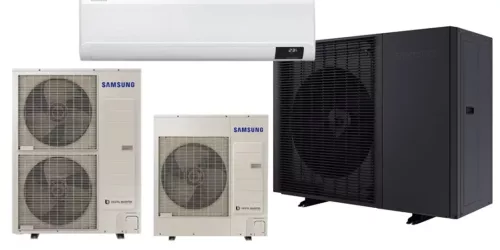
Samsung Air Source Heat Pumps: Overview and Costs
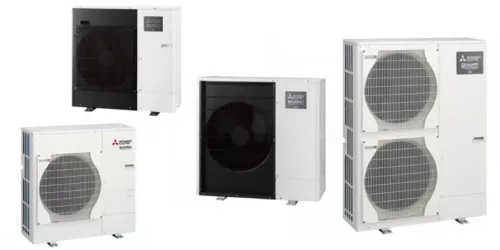
Mitsubishi Air Source Heat Pumps: Overview and Costs
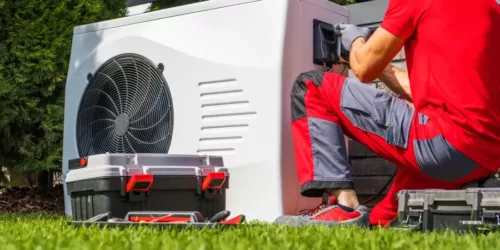
The Cost of an Air Source Heat Pump Service
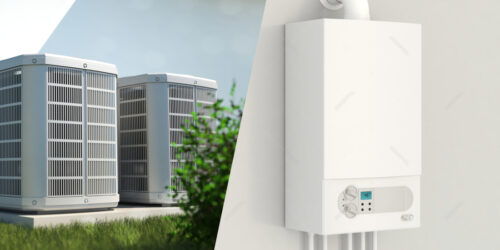
Heat Pump vs Gas Boiler - What's Better?
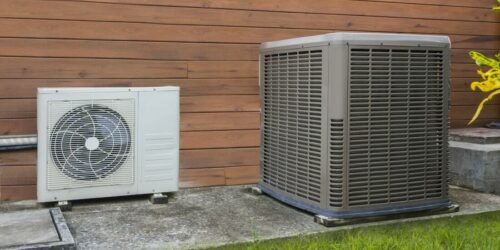
Different types of heat pumps: what’s available?
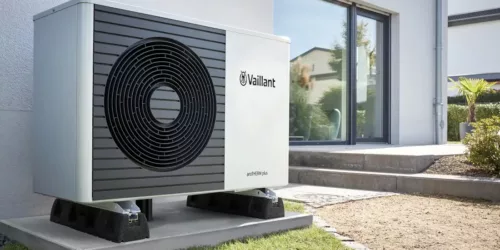
The Ultimate Guide to Vaillant Heat Pumps
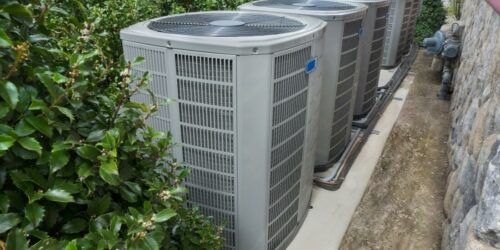
How Do Air Source Heat Pumps Work?
